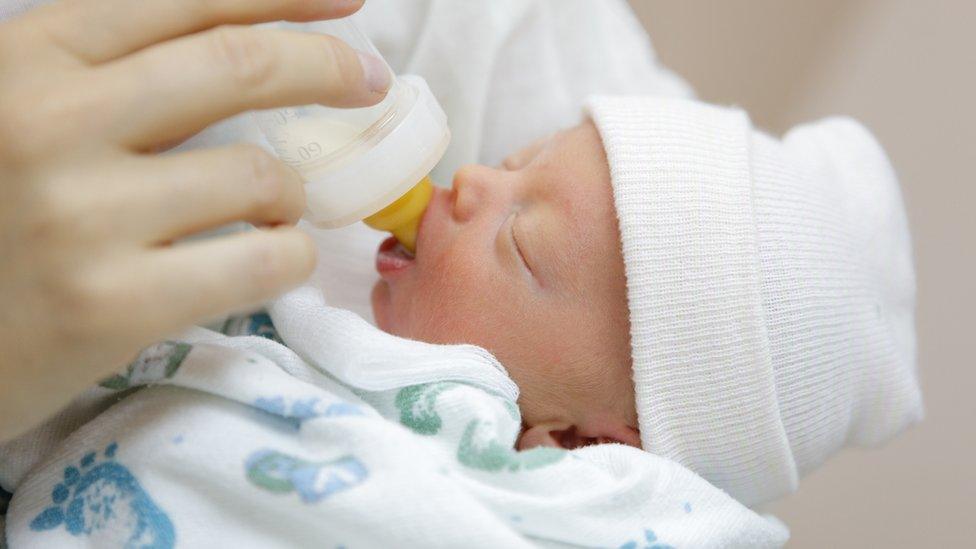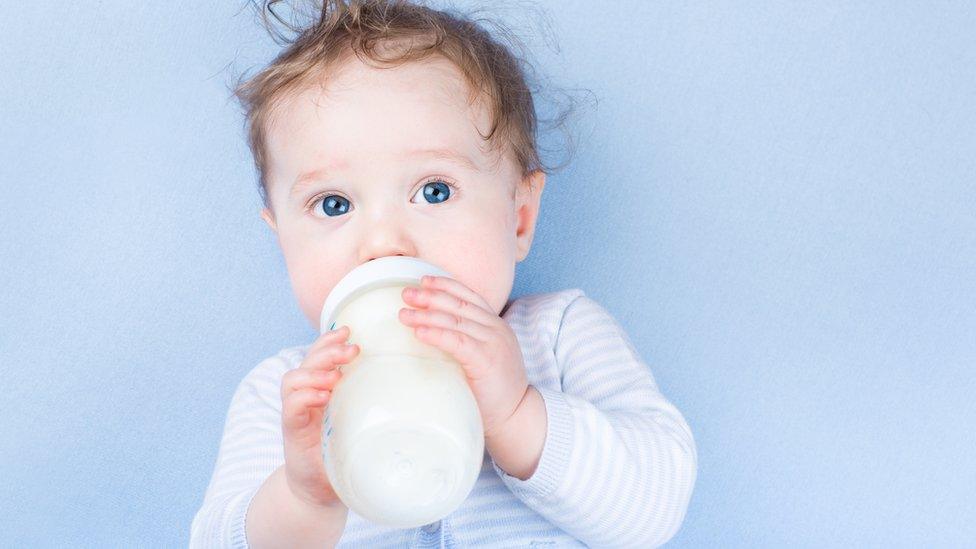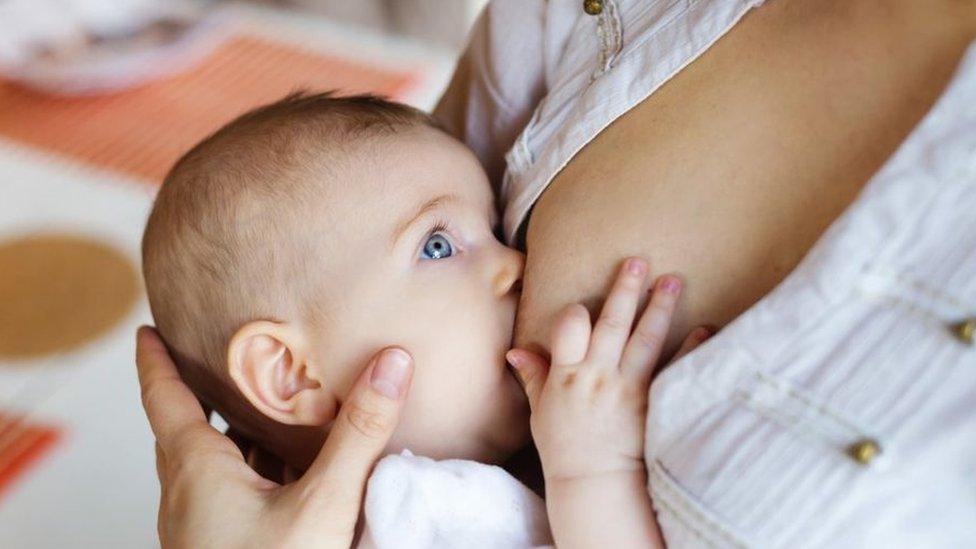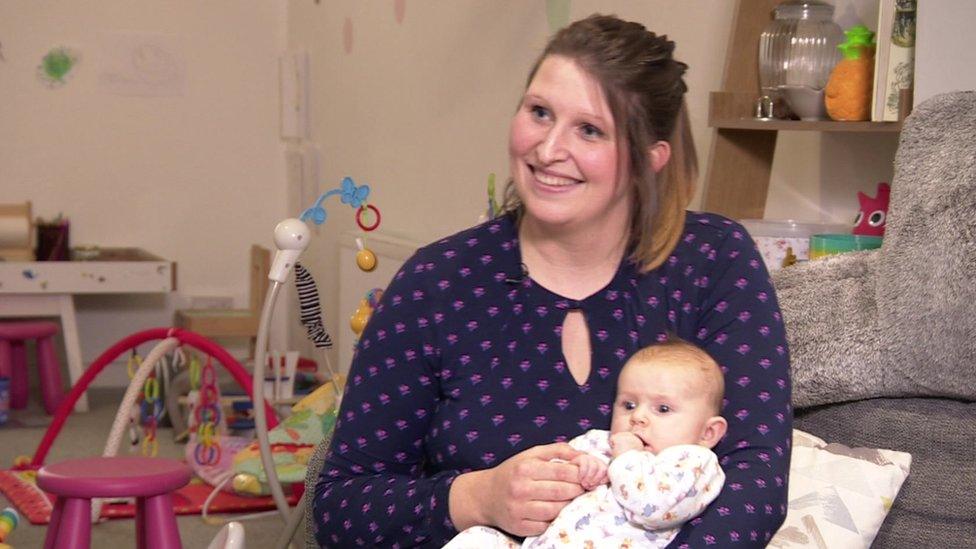Hospital's 'artificial feeding' letter to mothers criticised
- Published

A hospital trust has been criticised for describing mothers who use formula milk as "artificially" feeding babies.
Worcestershire Acute Hospitals NHS Trust made the comment in a letter that said it would no longer provide formula milk in its maternity units to mothers who had decided not to breastfeed.
One woman who said she had been unable to breastfeed said the letter's wording made her "sick to the stomach".
The trust said it would "consider carefully" feedback it had received.
'I felt ashamed'
Under the heading "What do I need to bring with me if I wish to artificially feed my baby?", the trust's letter said from 1 May expectant mothers who planned not to breastfeed would have to bring a first milk starter pack with them to hospital for when they gave birth.
It added that if there was a medical reason for giving formula milk, "this will be discussed with you and given if necessary".
The note was shared on Twitter by Kathryn Booth, who criticised its language and said mothers needed "support and understanding".
Allow X content?
This article contains content provided by X. We ask for your permission before anything is loaded, as they may be using cookies and other technologies. You may want to read X’s cookie policy, external and privacy policy, external before accepting. To view this content choose ‘accept and continue’.

Sharing her own experience, she said: "My daughter and I just couldn't somehow manage it either, and after days of being manhandled and just feeling awful and barely any milk, I have [given] her a bottle and the immediate difference [is] amazing. But at every turn in hospital, I felt ashamed."
Other Twitter users also responded to the letter including Alis Roberts who said it made her "feel sick to the stomach."
Allow X content?
This article contains content provided by X. We ask for your permission before anything is loaded, as they may be using cookies and other technologies. You may want to read X’s cookie policy, external and privacy policy, external before accepting. To view this content choose ‘accept and continue’.
Allow X content?
This article contains content provided by X. We ask for your permission before anything is loaded, as they may be using cookies and other technologies. You may want to read X’s cookie policy, external and privacy policy, external before accepting. To view this content choose ‘accept and continue’.
However, Kerry Collins said she did not see a problem with the term "artificial".
Allow X content?
This article contains content provided by X. We ask for your permission before anything is loaded, as they may be using cookies and other technologies. You may want to read X’s cookie policy, external and privacy policy, external before accepting. To view this content choose ‘accept and continue’.
A spokeswoman for Worcestershire Acute Hospitals NHS Trust said its decision not to routinely provide formula milk to mothers who chose not to breastfeed was part of its commitment to promote breastfeeding, in line with the Unicef Baby Friendly Initiative, external.
"We recognise that some new mums may not want to breastfeed and that some new babies may need to have their feeds supplemented, which we fully support," she said.
"We take the views of our mums and families very seriously, and will consider carefully all of the feedback on the wording of our information."
Breastfeeding levels in the UK have consistently been found to rank among the lowest in the world.
In 2016 a study found they were the lowest in the world, with just one in 200 mothers doing any breastfeeding after a year, compared with
23% in Germany
56% in Brazil
99% in Senegal
Breastfeeding is good for the health of the baby and lowers the risk of breast and ovarian cancer in mothers.
- Published24 July 2017

- Published19 December 2017

- Published11 December 2017

- Published21 February 2018
